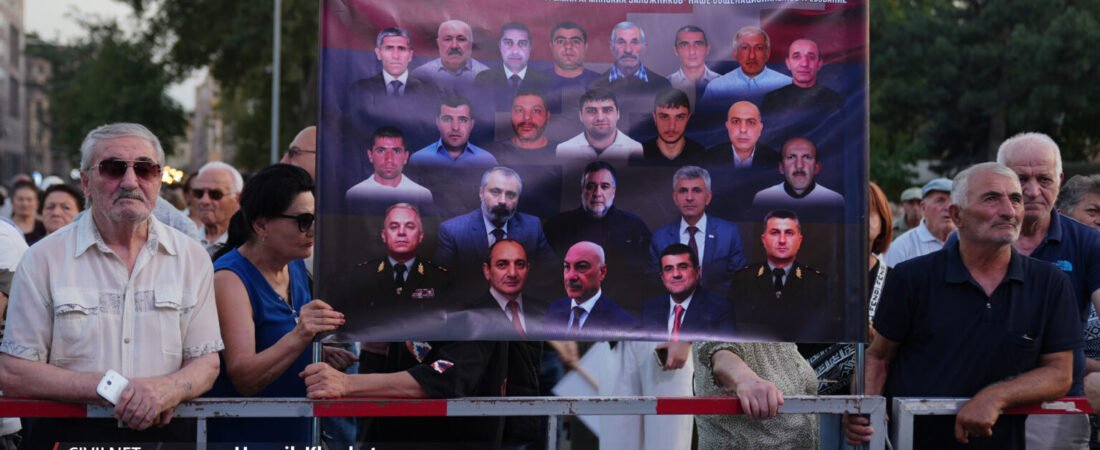Armenia is currently making no effort to secure visits to its citizens kept in Baku jails, human rights advocate Siranush Sahakyan, president of the Center for International Comparative Law, reported today.
The International Committee of the Red Cross (ICRC), which was the only international body with access to Armenian prisoners and hostages held in Baku, closed its office in Azerbaijan on September 3 at the demand of the Azerbaijani government. The ICRC has operated in the Karabakh conflict zone since 1992.
In April, Sahakyan’s organization and the Union for Protection of Interests and Rights of Artsakh Peoples appealed to Armenia’s Foreign Ministry to delegate consular protection rights for Armenian prisoners in Baku to Switzerland as a third country.
“The Foreign Ministry informed us that this issue was being discussed, but to date, there has been no positive announcement that such a request has been submitted to Switzerland or any other neutral country,” Sahakyan said. She noted that such steps fall within the Armenian government’s purview but are not being implemented.
“Armenia is currently making no effort to secure visits to its citizens held in Baku,” she stated.
Under the 1963 Vienna Convention on Consular Relations, when a state has no diplomatic representation in a particular country, it may entrust the protection of its citizens’ interests to a third state by agreement. This is an important mechanism when diplomatic relations do not exist. A notable example of applying this consular right provision was the U.S. delegation of protection of its citizens to Switzerland in 1979 following the Islamic Revolution in Iran, when the U.S. severed diplomatic ties with Iran after it detained 52 American diplomats.
Sahakyan noted that in the absence of diplomatic relations between Armenia and Azerbaijan, the mechanism of delegating consular rights to a third country falls exclusively within government authority. CivilNet has sent an inquiry to the Foreign Ministry to learn whether Armenia has approached a third country on this matter.
When asked whether it was possible that Armenia was not approaching Switzerland to avoid aggravating the situation, Sahakyan answered affirmatively. “That is a very logical conclusion,” she said, adding that Azerbaijan does not want to release Armenian hostages because it is a political lever that will be preserved as long as a peace treaty with Armenia is not finally signed and enters into force.
Sahakyan also said that the closure of the ICRC Azerbaijani office does not mean Baku must necessarily ignore the Red Cross’s humanitarian mandate. There were situations when countries, from humanitarian considerations, allowed assistance from representatives of structures located in neighboring countries or by the Red Cross’s central Geneva office directly.
“In my assessment, these very options could be being negotiated and that Azerbaijan could at least allow ICRC Geneva office staff to visit Armenians and provide humanitarian assistance,” she said.
Captives held in Baku include three former presidents of Karabakh, namely Arkadi Ghukasyan, Bako Sahakyan and Arayik Harutyunyan, parliament speaker Davit Ishkhanyan, former state minister Ruben Vardanyan, former Defense Army commander Levon Mnatsakanyan, deputy commander Davit Manukyan and former foreign minister Davit Babayan. Baku officially acknowledges holding 23 Armenian captives, the rest being POWs captured during the 2020 war and civilians.
Anna Yeganyan | Civilnet

